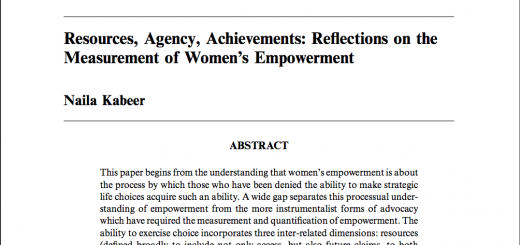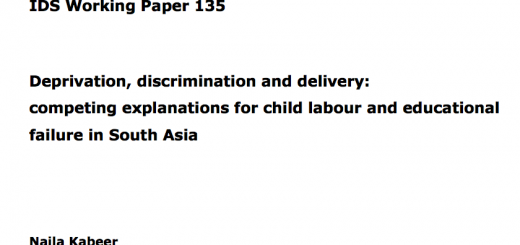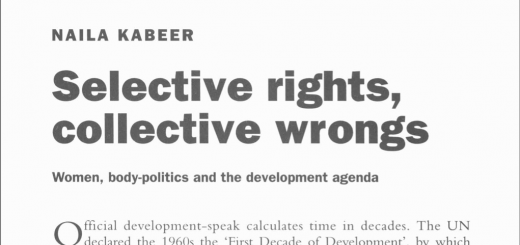‘Compensating for institutional exclusion? Lessons from Indian government and non-government credit interventions for the poor’, IDS Discussion Paper No. 356, Brighton (co-authored with Ranjani Krishnamurthy)
This paper conceptualises poverty as the product of multiple, and frequently interlocking, forms of institutional exclusion and focuses on the exclusion of the poor from mainstream financial institutions in India in order to analyse the rules, norms and procedures by which this occurs. It compares the efforts of government and non-government agencies to compensate for this through alternative credit programmes and draws out lessons for policy makers. It concludes that no uniform set of interventions can meet the needs of all the poor. While credit interventions can address a range of immediate poverty needs, they are only effective as the basis of sustainable livelihoods among those with prior complementary resources. For others, employment generation and straightforward safety nets remain important elements of a broad-based poverty reduction strategy.



